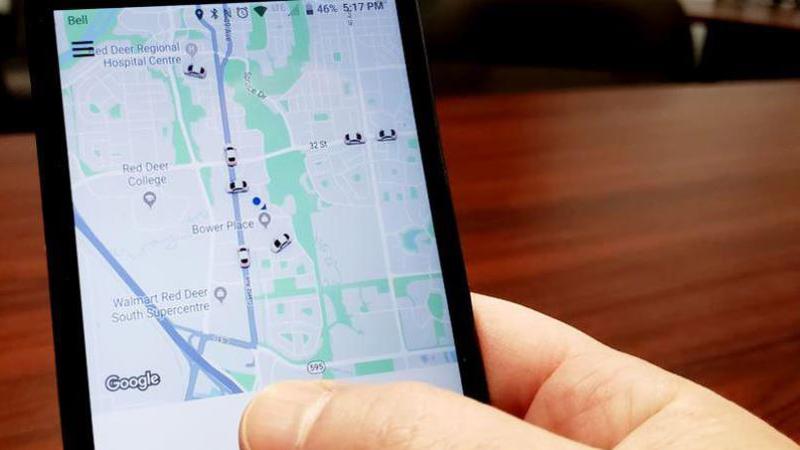“We don’t stop anyone from operating. Uber drivers are required to provide us with the same information that the provincial model requires. We communicated with Uber well in advance of the September 1st implementation so anyone missing this information could provide it before that date, ”said Amy Fengstad, city park and admissions officer.
A criminal record check, a vehicle inspection and a driver’s letter are mandatory.
“Implementation was important as there was no regulatory body to review criminal records and driver summaries for Uber drivers. Essentially, Uber was self-monitoring with random, provincial sample audits. “
Safety was the top priority in the consultations, which ranged from an initial regional survey (336 participants) in summer 2017, to focus groups in 2018, to ridesharing, interviews with stakeholders and an online survey.
The city and the RCMP have no information on violent incidents involving customers and drivers, but be aware that safety is highly dependent on the readiness of the vehicle.
Since he has no criminal record himself, John claims that the city registration is a hindrance to his ability to drive.
With a provincial license, John could operate in other markets that Uber does, namely Calgary and Edmonton.
John would drive his vehicle to the bigger cities twice a week to make more money.
“My problem is the license changes, not the security with which the city justifies its changes. The city shouldn’t allow a single taxi company to have problems with Uber since it started here, ”says John, referring to the co-owners of Associated Cab and Alberta Gold.
“The taxi company doesn’t like Uber doing some of their business for them.”
Fengstad denies lobbying by the highly regulated taxi industry, but admits that officials have raised concerns about regulatory injustices.
As a post-secondary graduate, John is fortunate enough to make $ 50 a day driving Red Deer. Since the changes, he has temporarily taken a security job Monday through Friday and then drives for Uber in Calgary over the weekend.
Going there every day is not profitable due to the price of gasoline.
“I can’t find a job in my area. Given the Uber issues, my wife and I are considering moving to a bigger city where I will likely find a meaningful permanent job to support my family, ”says John, who has moved to Edmonton since our interview. “We are also citizens who pay taxes. You’d think the city would want us here. “
John paid $ 100 for a Red Deer license, but Uber lets drivers choose which license to upload, he explains.
He also claims never heard of the changes until they happened. The city denies responsibility for it, saying it is Uber’s job. Uber says it notified drivers twice and advised them of the necessary steps to take.
Laura Miller, Uber public policy director, says Red Deer has the toughest requirements for a city this size in Alberta.
“At a time when the world is digitizing and in the midst of the pandemic, setting up personal processes for potential drivers is quite a challenge, especially for those who may be responsible during normal business hours. It’s also worth noting that Red Deer’s fees are currently 2.5 times higher than those of communities of similar size in Alberta, ”Miller says.
“Ultimately, high fees and increased bureaucracy can deter others, be they established global players or new local startups, from entering the market, which limits competition and consumer choice. We encourage policymakers to consider the needs of today’s ridesharing – both riders and drivers – and to create rules tailored to this modern industry. “
Stressing that taxis and ridesharing are different industries, Miller reiterates Uber’s commitment to safety, regardless of licensing procedures.
Measures include repeated driver screenings, an emergency button in the app, anonymization of the phone number, the engagement of law enforcement agencies and COVID measures.
A recent internal survey by Uber found that 80 percent of Canadian drivers and delivery drivers were very or fairly satisfied with their experience, including the benefits.
“Our bylaws are closely tied to the Calgary model, however, both Edmonton and Calgary do not have individual transportation network driver licenses. In these two cities, they have a TNC broker license based on the number of drivers at certain times. Here we have kept brokerage fees lower and added a driver for hire fee to accommodate different operating models, ”explains Fengstad.
“Again, it was about fairness and consistency between the traditional taxi and limousine / limousine service and the new Transportation Network Companies (Uber) and Designated Driver Services, which carry all passengers who may be in a vulnerable condition.”
The taxi company Uber, the two limousine companies RCMP and MADD were consulted about the new statutes.
“Citizens can have peace of mind knowing that every driver for hire in Red Deer has been vetted and vetted through administrative processes that never happened before.”
The new Vehicle for Hire statutes are intended to commit to better reporting of security incidents.
through

